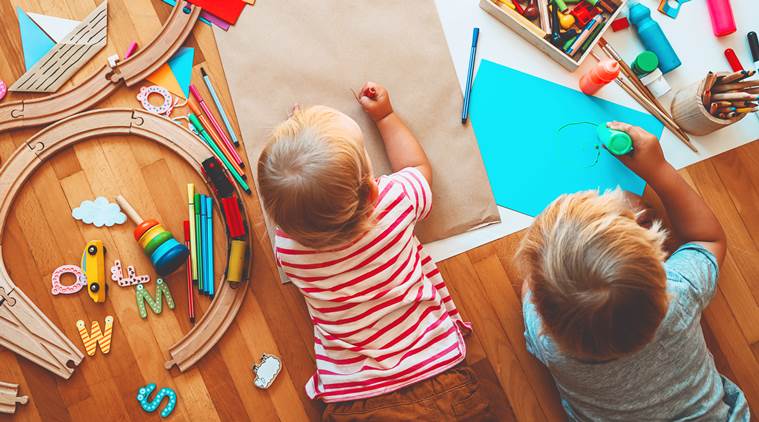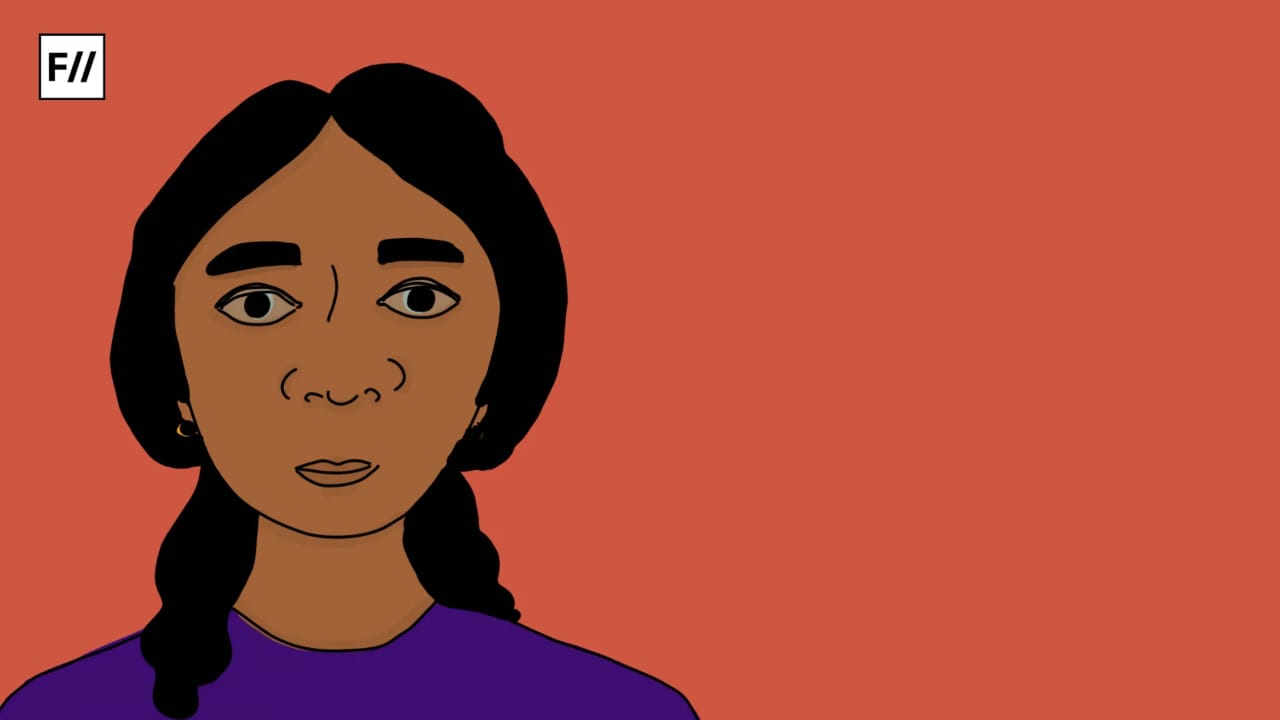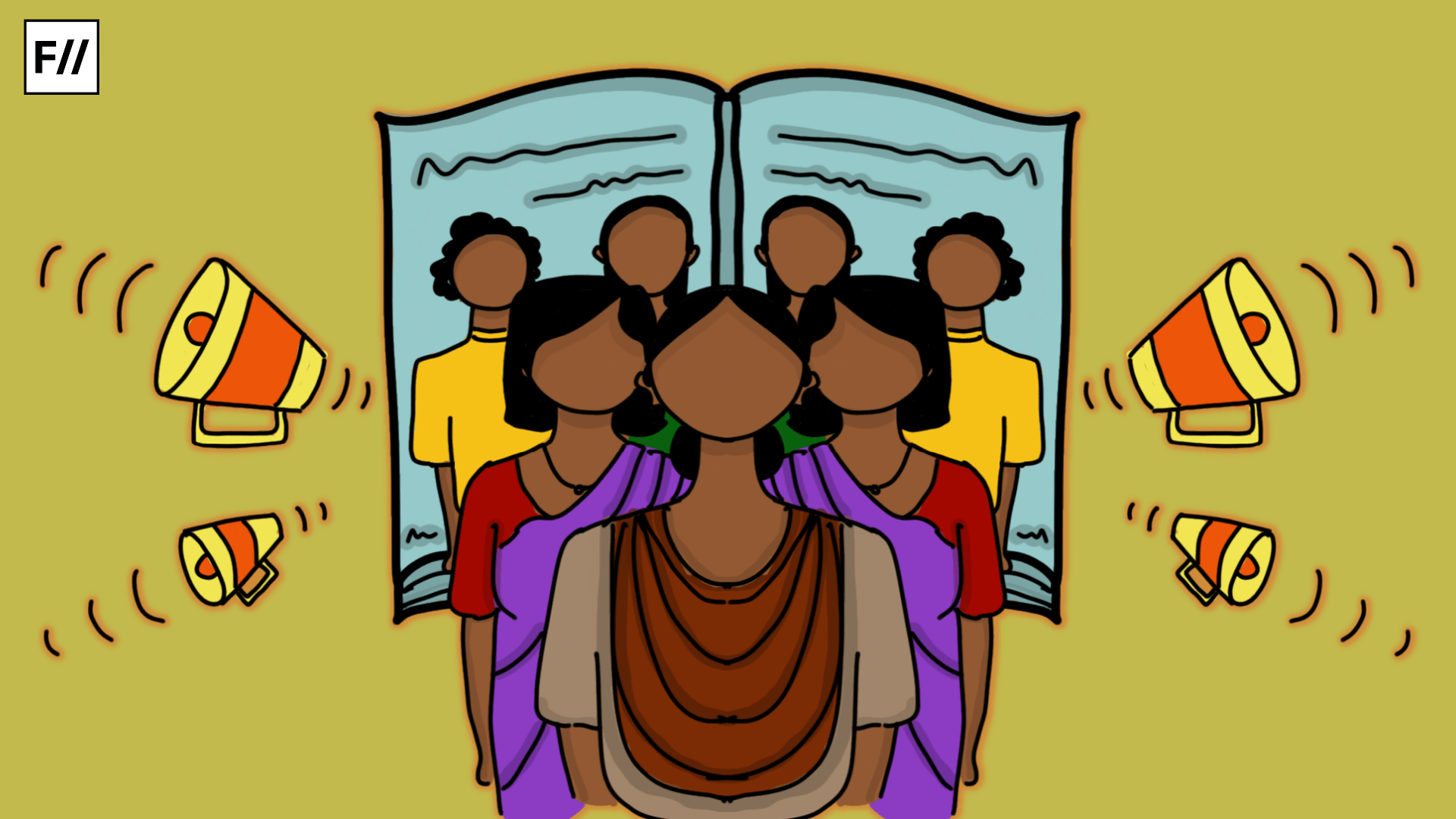Anya* is a dumpling-cheeked infant who lives with stylish, smiling parents in a prosperous country. There, she enjoys the best of both worlds: lovingly cooked Indian meals and winter days wrapped in sparkling snow. You know all about Anya’s birth, get updates on her hair growth, witness her erupting teeth, and watch the diapered baby bawl as she is vaccinated.
You are not Anya’s cousin, uncle, aunt, godparent, babysitter, or even distant family friend.
In fact, her parents do not know you exist.
Thankfully, the explanation is a benign one: Anya’s mother is an influencer, so you—and her 40,000+ Instagram followers—get a daily flood of posts chronicling her life as a millennial woman and mother.
Unavoidably, this show’s supporting star (or perhaps its heroine?) is none other than baby Anya.
Also read: Shakuntala Devi, Paa, Kahaani…: The Vidya Balan Brand Of Motherhood
Chronicling Motherhood

There is no shortage of names; whether you know the charming “mommy bloggers” and “dadfluencers” or the more formal “mom/mum influencers” or even the gender-neutral ‘parenting influencers‘, you must have encountered at least one of these within the Instagram universe—without even trying.
Parenting influencers who identify as women and post regularly on social media do something that many governmental and non-governmental agencies still struggle with today: visibilising women’s domestic labour on their terms.
As a world, we hunger for the innermost narratives that those around us have to offer. PR-style statements and generic updates no longer ring true. Instead, we study the unauthorised photos of baby bumps and celebrity infants or seek out personal stories that reveal both the happiest and the most challenging parts of giving birth.
With younger tech-users becoming parents, maternity and newborn photoshoots have exploded in popularity. Cameras are now packaged into even the most basic smartphones, and more editing tools can be accessed free of cost. Parents are increasingly photographing their children and doing so outside of professional studio settings. The resulting shots are more intimate, spontaneous, and memorable.
Enter the parenting influencers: these social media users work their magic by capturing themselves, their families and creating digital art with them. On their Instagram accounts, craft photography meets literature to tell a sweetly entwined parent and child story. Though the online accounts that enjoy the most fame usually belong to light-skinned, fashionable, wealthy, and able-bodied mothers in urban or international settings, almost anyone with a smartphone and an internet connection can join the fun.
Many parenting influencers document their children’s lives for themselves and the enjoyment of their audience. Others use their reach to educate followers about miscarriages or stillbirths, postpartum depression, children with disabilities, adopted or foster children, queer or blended families, a work-life balance, or new child-rearing methods. They interact with other parents as friendly equals rather than as experts handing down rules and advice.
Also read: Normalizing Postpartum Depression: Mental Health For New Mothers
It is easy to understand the appeal of a story whose main characters can speak to you.
Feminist Storytellers
Instagram is an attractive and easy to use social media platform. Sustaining itself on several billion images, this phone-based social media platform offers a fertile ground for users to share their life as an ongoing epic and curate its most dazzling scenes for the world to applaud.
Parenting influencers who identify as women and post regularly on social media do something that many governmental and non-governmental agencies still struggle with today: visibilising women’s domestic labour on their terms.
On social media, mommy bloggers and mom influencers broadcast their livelihood in all its complexity and urgency. One can always read a dry academic paper on gendered domestic work that is stuffed with faceless statistics (and only meant for the eyes of paying subscribers and scholars). However, more people will undoubtedly watch and empathise with a video of a sleep-deprived mom influencer trying to clip her thrashing toddler’s nails.
This year, while Indians debate the pros and cons of paying a salary to homemakers, Anya’s mother demonstrates in real-time how she changes her daughter’s diaper multiple times overnight—making it clear that her act of love also requires skill, practice, dedicated supplies, and commitment. Despite her enviable privilege, she is never free from her duty and must nearly always be ready to attend to her baby, whether directly or with others’ help.
On the bright side, by using multimedia tools to create and publish their family’s story to online followers, mommy bloggers’ efforts can translate to lucrative sponsorship deals, free products for their children, easier access to support networks, positive media coverage, and valuable connections. Many see this as a matter of pride and an example of feminist empowerment.

Men, too, are entering the world of parenting influencers, whether they do so deliberately or not.
A doctor whose Instagram account heavily features his young children challenges the traditional image of an Indian father and its expected ideals of sternness and restraint. With candid snaps of his children from the day they were born, accompanied by emotional captions describing their physical and psychological growth, he rejects toxic masculinity to normalise instead the idea of a successful career man who adores being a father.
Also read: ‘They Call It Love, We Call It Unwaged Work’: Revisiting The Feminisation of Domestic Work
However, how do the children feel about their parents’ relationship with social media?
Privacy Violators
Bodily autonomy is a concept that allows even babies and toddlers to reject hugs or kisses from relatives, to dress themselves as they wish (as long as it is safe), to choose how they identify and learn to give or withdraw consent from an early age.
Though integral to her mother’s social media identity and brand, the child is a separate individual with her rights, who is unable to understand the consequences of having her photos accessible to strangers all over the world and the distress (if not outright danger) this might pose to her as an adult.
For now, baby Anya is blissfully unaware that her naps, bath times, crying fits, messy mealtimes, and even pediatric appointments are carefully photographed and uploaded to her mother’s public Instagram account.
Though integral to her mother’s social media identity and brand, Anya is a separate individual with her rights. At almost a year old, she cannot consent to her images being shared on social media. Even if she were ten years older and amenable to her mother’s requests, she would still be unable to understand the consequences of having her photos accessible to strangers all over the world and the distress (if not outright danger) this might pose to her as an adult. If children of high-profile influencers apply for sensitive jobs, enter witness protection, or have gender-affirming surgeries they may find it harder to settle into everyday life if the digital shadow of their publicised childhood eclipses their adult identity.
The ethical conflicts of mommy blogging have been pointed out, especially as the children-turned-celebrities learn the truth about their lives and struggle to make sense of what has been done to them. In India’s collectivist societies, where parents wield even more control over their children’s lives and reputation, these conversations are desperately needed but have not entered the mainstream.
Two questions must be asked:
How can a minor child—prohibited from having their own Instagram account—give informed consent for their photos to be splashed across that same platform for tens of thousands of people to watch, like, comment, and screenshot?
How can a celebration of motherhood be feminist—or even moral—when it violates a child’s right to privacy?
Also read: Book Review: Mothering A Muslim By Nazia Erum
Crisscrossing Priorities
Parenting influencers perform their caring responsibilities before a camera, but they also document their labour and love in doing so.
As storytellers who use their talents to narrate and publish a family saga, these influencers hold the power to educate and entertain their audiences while receiving compensation. For many parents, this is a feminist livelihood.
However, as adults responsible for the safety and psychological well-being of young children, these social media users must be held accountable and reminded that their babies’ rights hold more importance than creating their brand.
*Name changed for protection.
Featured Image Source: Indian Express
About the author(s)
Sahana is a journalism graduate and multimedia storyteller whose areas of study include digital media and society, publishing, healthcare communication, and postcolonialism. She spends her free time typing up novels, shooting 35mm film, growing her stamp collection, or eating all her snacks in a forest with no cell reception. You can find more of her projects on Twitter and Wordpress.




